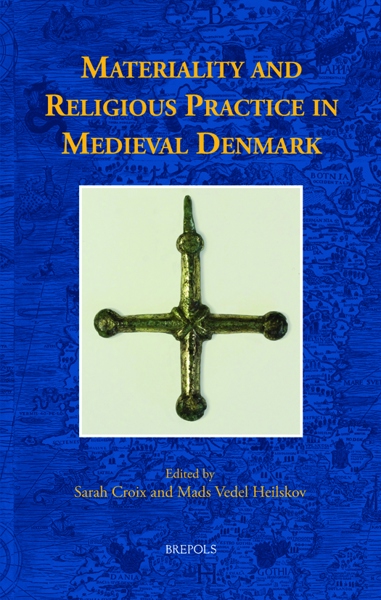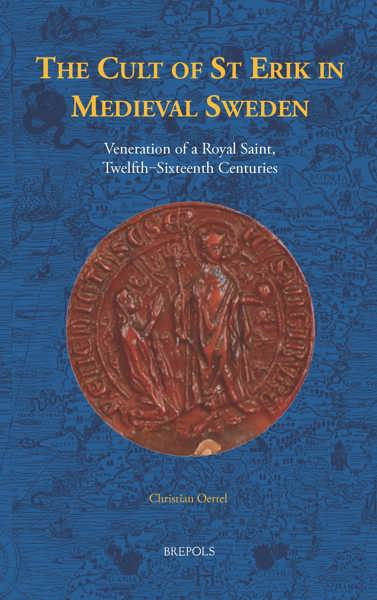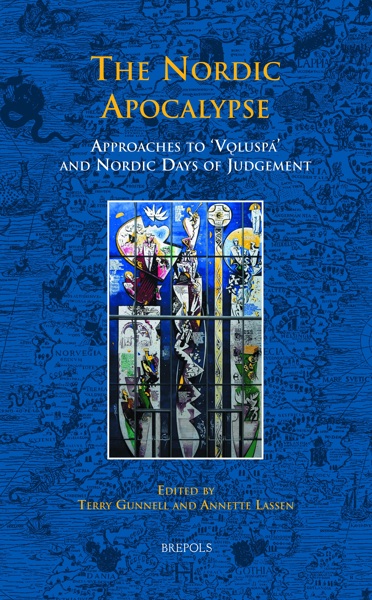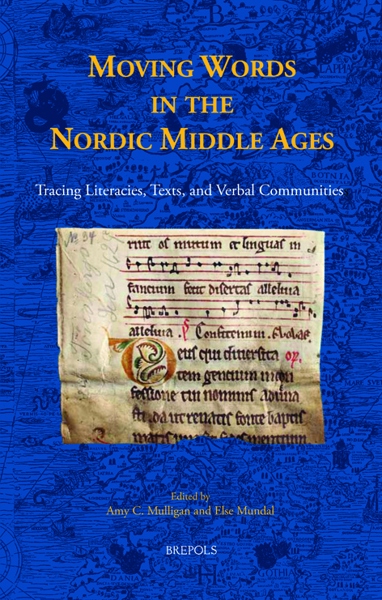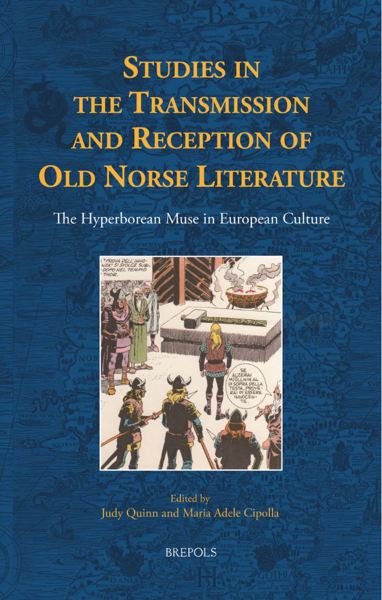
Materiality and Religious Practice in Medieval Denmark
Sarah Croix, Mads Heilskov (eds)
- Pages: 296 p.
- Size:156 x 234 mm
- Illustrations:11 b/w, 32 col.
- Language(s):English
- Publication Year:2021
- € 85,00 EXCL. VAT RETAIL PRICE
- ISBN: 978-2-503-59416-3
- Hardback
- Available
- € 85,00 EXCL. VAT RETAIL PRICE
- ISBN: 978-2-503-59417-0
- E-book
- Available
Materiality and Religious Practice in Medieval Denmark stresses the significance of the sensory, dramatic enactment that moved the soul, body, heart and mind of the medieval faithful and proposes to revisit and pave the way ahead for research in religious material culture in medieval Denmark.
“In summary, this fascinating book generates much needed context to religious rituals and practices through the useful combination of rich data and inspiring texts; certainly, the perspective of materiality has added some of the major missing pieces of the puzzle. Personally, this is exactly the type of book I have been looking for.” (Alexandra Sanmark, in Medieval Archaeology, 66/2, 2022, p. 525)
“In all, this is a fine and useful collection of essays that adds subtlety to our knowledge of medieval Scandinavian religious sensibilities and practices.” (Roderick McDonald, in Parergon, 40/1, 2023, p. 249)
"Altogether, the reader will be rewarded with a rich bouquet of relevant studies by a variety of scholars devoted to religious objects and their symbolism." (Albrecht Classen, in Mediaevistik, 36(1), 2023, p. 324)
Sarah Croix is assistant professor in archaeology at the University of Aarhus, working with material culture, identities and daily practices in early medieval Scandinavia and Europe.
Mads Vedel Heilskov is a post-doctoral research fellow at the Carlsberg Foundation, focusing on religion and materiality in the medieval Catholic West.
From bread and wine to holy water, and from oils and incense to the relics of saints, the material objects of religion stood at the heart of medieval Christian practice, bridging the gap between the profane and the divine. While theoretical debates around the importance of physicality and materiality have animated scholarship in recent years, however, little attention has been paid to finding solid, empirical evidence upon which to base such discussions.
Taking medieval Denmark as its case study, this volume draws on a wide range of different fields to explore and investigate material objects, spaces, and bodies that were employed to make the sacred tangible in the religious experience and practice of medieval people. The contributions gathered here explore subjects as diverse as saints’ relics, sculptures, liturgical vessels and implements, items used for personal devotion, gospel books, and the materiality of Christian burials to explore the significance of objects that moved the souls, bodies, hearts, and minds of the faithful. In doing so, they also open new insights into religion and belief in medieval Denmark.
List of Illustrations
Introduction: Materiality and Religious Practice in Medieval Denmark — MADS VEDEL HEILSKOV AND SARAH CROIX
Research History — Materiality and Medieval Religious Practice in Danish Research — MORTEN LARSEN
Materiality in Medieval Episcopal Rites: Some Examples — BERTIL NILSSON
The Liturgical Use of the Gospel Book in the Middle Ages and Notions of Sacramentality? — NILS HOLGER PETERSEN
Making the Liturgy Manifest: Objects and Materials in Late Medieval Church Rites — MARTIN WANGSGAARD JÜRGENSEN
Holy Heads: Pope Lucius’s Skull in Roskilde and the Role of Relics in Medieval Spirituality — LENA LIEPE
Living Matter in Medieval Denmark — MADS VEDEL HEILSKOV
Objects of Personal Devotion — Outer Markers and Inner Meanings — METTE HØJMARK SØVSØ AND MARIA KNUDSEN
Materiality of Memory: The Use and Significance of Wax in Late Medieval Devotion — LAURA KATRINE SKINNEBACH
Materiality in Medieval Burials — JAKOB TUE CHRISTENSEN AND MIKAEL MANØE BJERREGAARD
Future Perspectives: An Epilogue from the Views of an Archaeologist and Art Historian — METTE SVART KRISTIANSEN AND MERCEDES PÉREZ VIDAL
